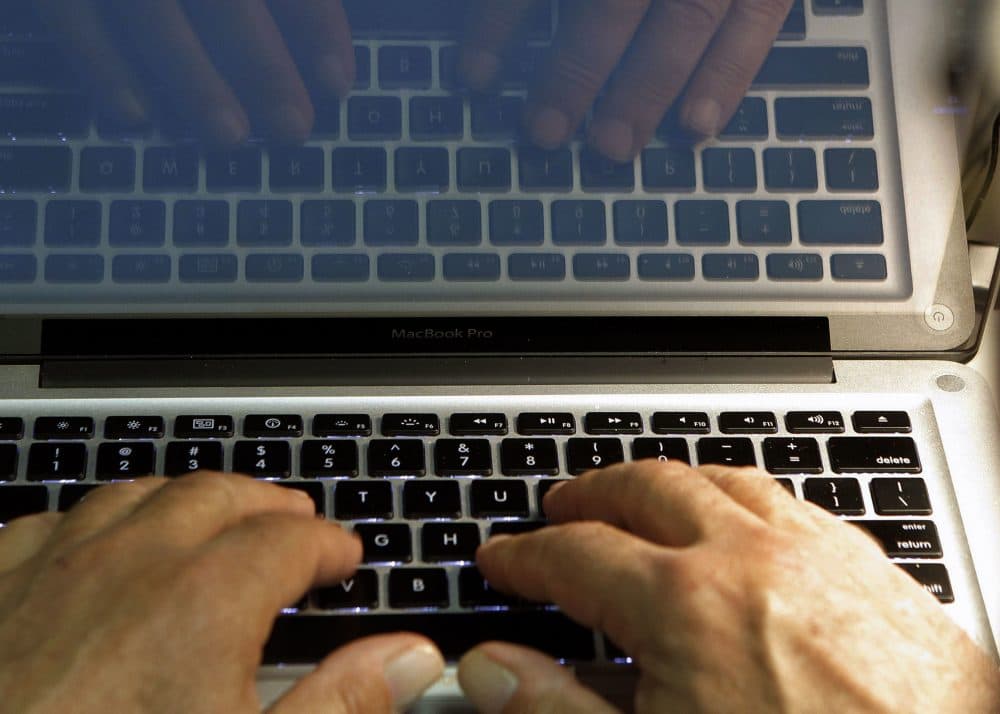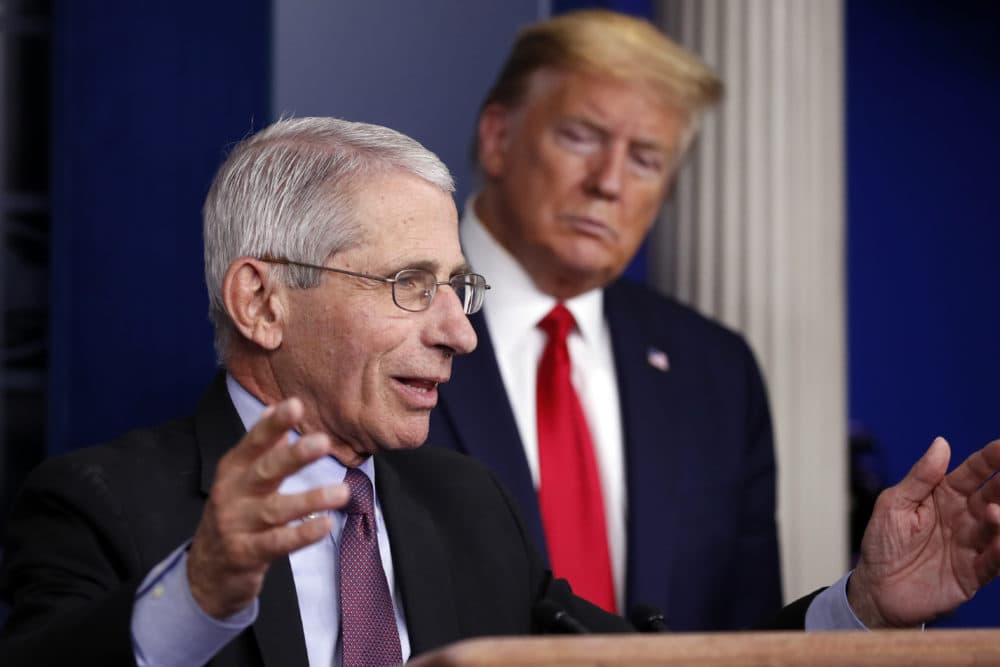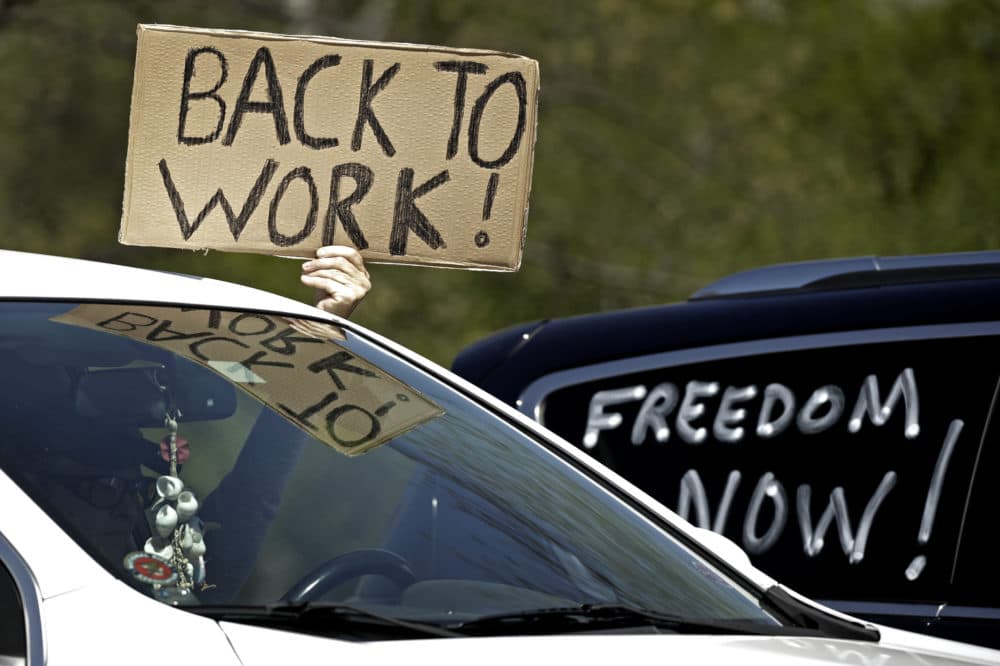Advertisement
Facing An 'Infodemic' Of Misinformation About The Coronavirus Online
Resume
As researchers learn more about the coronavirus, there has been a growing amount of misinformation widely distributed across social media and other platforms.
In some cases, this misinformation about the virus — or conspiracy theories — may be driving some of the protests against restrictions related to the coronavirus.
Joan Donovan is the director of the technology and social change research project at Harvard Kennedy School's Shorenstein Center. Her work focuses on online extremism, media manipulation, and disinformation campaigns. Donovan told Radio Boston about the type of misinformation spreading online and the impacts.
Interview Highlights:
On why she's concerned about the flow of information right now:
"The World Health Organization has declared that there's two crises going on. We have the pandemic, where the hospitals are being hit hardest on the front lines... But, the "infodemic" is what the W.H.O. describes as the overabundance of information — some accurate and some not. That [abundance] makes it hard for people to find trustworthy sources and reliable guidance when they need it."
On what an overabundance of misformation may mean in your daily life:
"What happens if you search on Google for what are the symptoms of coronavirus? Do you get reputable information when you need it or not? You might not get reputable information if you search for: How do I get tested for coronavirus? There's a lot of scams out there that are trying to sell at-home testing, which doesn't exist."
On the impacts of people already skeptical of or not trusting of the quality the information from the government or from particular media sources:
"We are already enmeshed in a highly polarized political environment. For people to trust the science, they have to trust the scientists. So, undergirding these "reopen protests," we've seen people.. not social distancing. They're not wearing masks. And they're chanting 'Fire [Dr. Anthony Fauci, the President's medical adviser].'

"The basis of these [types of] protests is medical misinformation. They do believe that somehow the experts are part of this grand scheme to crash the economy. The kind of conspiracy theories that we're seeing around this has a lot to do with political polarization and then not trusting medical report recommendations."
On how she thinks about U.S. conspiracy theories in a global context:
"We can look to other countries and realize this isn't just about the U.S. Many other countries that have high rates of infection are doing the exact same protocols. So I do find it hard to believe that somehow that this is a conspiracy about America in particular when I see other countries also participating in social distancing."
On whether there are legitimate reasons and ways for people to protest:
"I hear people about their concerns about civil liberties and there are responsible ways to protest right now. I have seen people, protest in their cars and drive their cars around a statehouse and put up signs on their cars. I think there are ways people can express their anger but do so in a way that's responsible for their health."

On whether the changes in health guidance, like changing the guidelines around whether people should wear masks in public, can lead to more confusion:
"I do believe that that the mask recommendation could have been handled much more smoothly. But at the same time, it's really hard to actually get your expert information into the public's hands. Given the abundance of misinformation and conspiracy that's already out there, it's really hard to get at your audience these days."
This article was originally published on April 23, 2020.
This segment aired on April 23, 2020.

